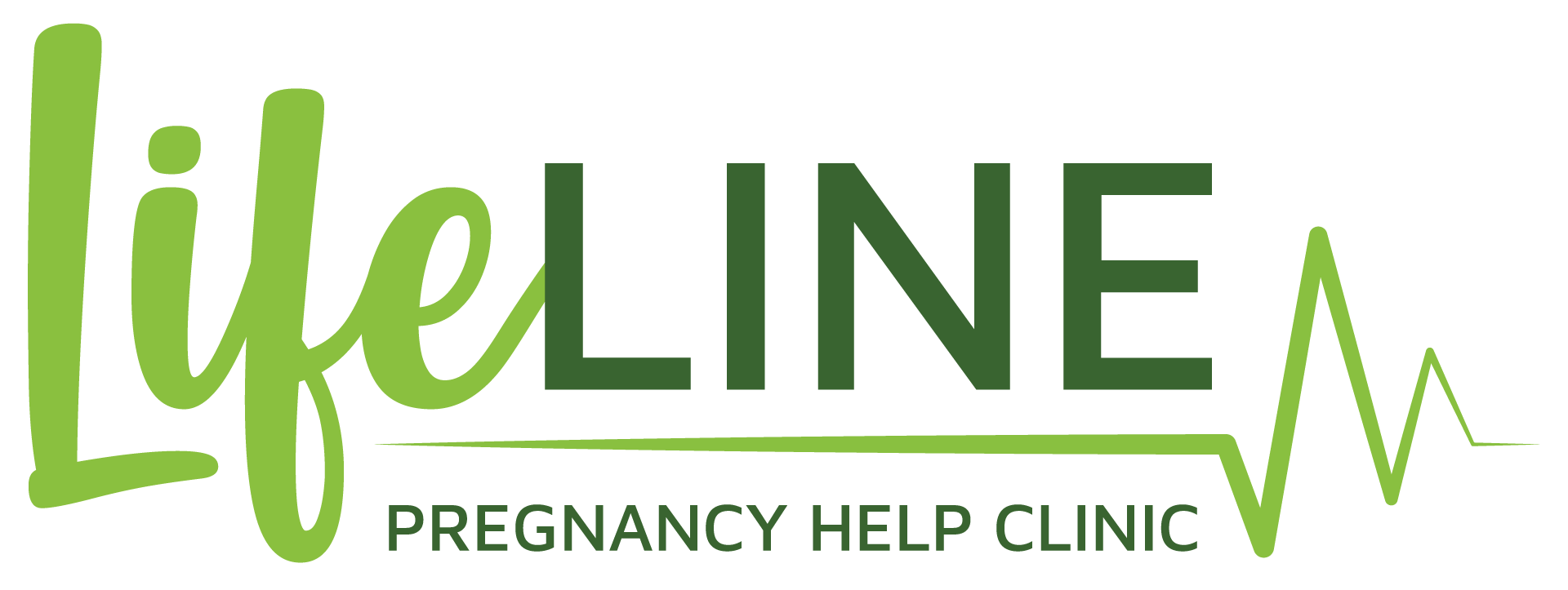Love, As Defined by Teens
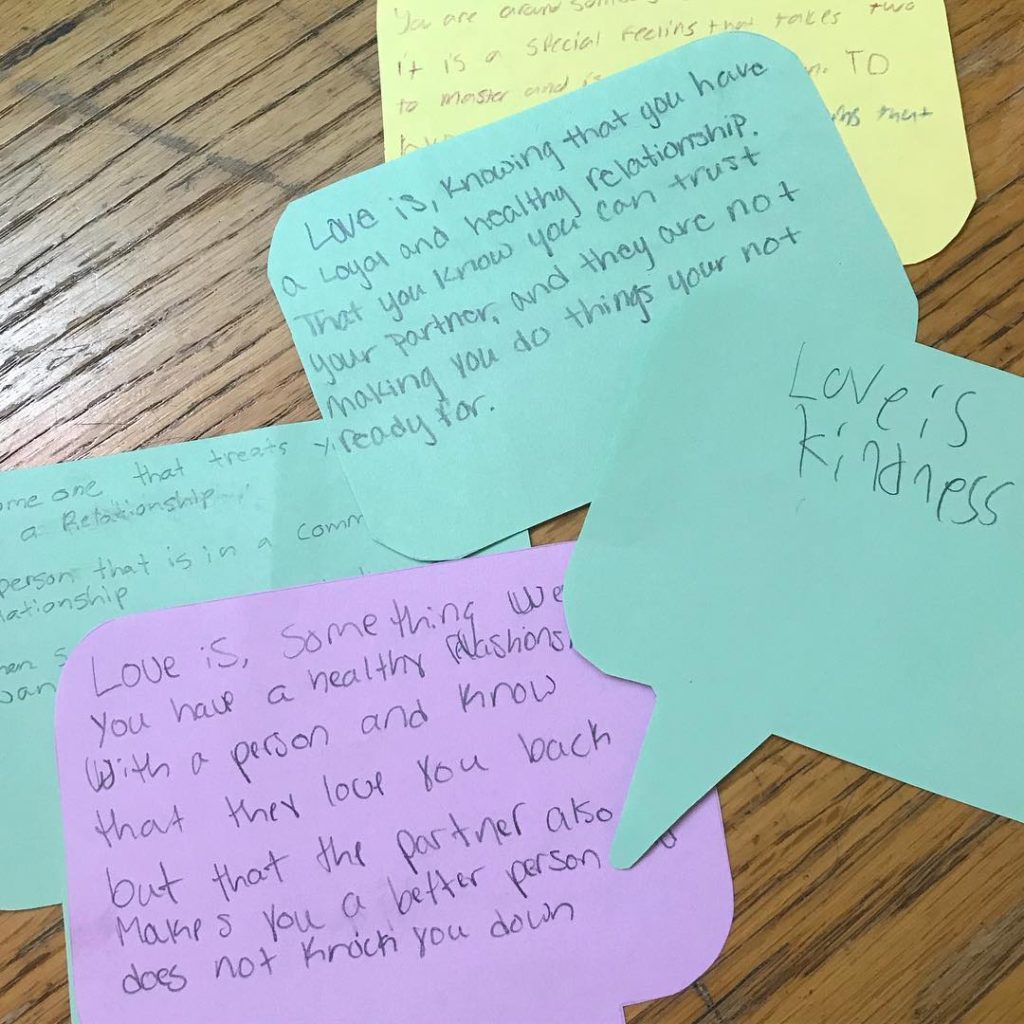
Ask a teenager near you to define love. I dare you to find out what’s going on in that brain of theirs. The answer will utterly delight you or convince you that something is entirely wrong with society. Either way, hear them out. What the teens in your life believe about love both reflects the messages they’ve internalized from their culture as well as points to the direction of our world. How the next generation understands this little word means more than you or I may realize.
Amy and I ask teens every week what they think love means. Through Lifeline’s Pure Freedom program, we challenge middle and high school students to consider what love actually looks like and what it doesn’t look like. Yes, we encourage teens to wait until marriage to have sex, educate them about STDs, and walk them through how to set up healthy boundaries, but true transformation can’t happen without addressing the core issue. So we help them deconstruct and reconstruct their concept of love, hoping to guide them toward truth.
One of my favorite activities with our students is Love vs. Infatuation. We explain that love and infatuation both start from attraction–an initial draw to a particular person and wanting to spend more time with them. But that attraction can go in one of two directions: toward love, which is about truly caring for another person; or infatuation, which is all about pleasing self. Each student receives a card with an attribute of either love or infatuation on it, and one-by-one they come up to the front of the room and stand on whichever side they think their card belongs. These examples should give you a clearer picture:
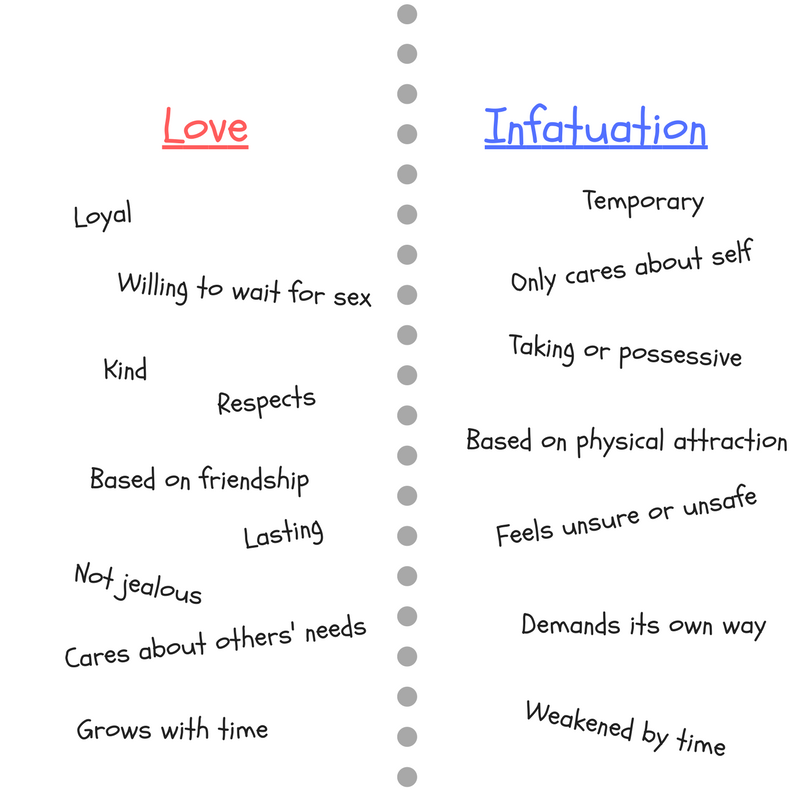
It’s amazing to see that more often than not, they get it. They really get it. It almost seems intuitive to them; what love is and what it isn’t. Perhaps they didn’t have the exact words for it, but when provided with the vocabulary, they piece it together. We always ask them why they think their card represents love or infatuation, and one of my favorite responses I get is something like, “Uh…I don’t know how to explain it, that’s just the way it is!”
But it isn’t always as simple as it should be, is it?
I wish that I only ever heard the truth about love from these precious young men and women. But they’ve also been fed a feast of lies, and so many of them believe it. After the Love vs. Infatuation activity, we give everyone a piece of paper shaped like a speech bubble to write their own definition of love. We tell them to write a sentence, or just one word, a bullet-list, or even a poem or a drawing. A lot of students repeat what they learned in the activity, others illustrate a bride and groom holding hands, and some give their own concrete examples like “listening when their partner is sad,” or “being together forever with your best friend”. Yet others draw a broken heart, or write a poem about how love leaves you lonely or doesn’t even exist.
If love didn’t exist, I couldn’t do this job.
I couldn’t proclaim the truth I hold so dearly in front of hundreds of students who may not care or believe me. I couldn’t read the anonymous questions written on scrap pieces of paper asking “How do you find good examples of healthy relationships when you can’t find any?” or “Is it unhealthy if both the girl and the boy want to have sex to show loyalty?” or “Why should people date? Because I think just of sex.” If love didn’t exist, this job wouldn’t exist. Lifeline wouldn’t exist. There are so many days when I wish I could just transplant the work that the Lord has so tenderly performed on my heart into the heart of every student I teach. I want to get it through their heads that they are worth more than the price culture places on their minds and bodies.
But love does exist, so I keep teaching. And the more I teach, the more the Lord reveals to me that this world is much more redeemable than it is broken. Seventh graders still get it, they really can know what love means. It’s up to us–all of us–to ask them what they know. Ask. Listen. Sharpen truth. Rebuke lies.
That is why Pure Freedom exists. The teens in your neighborhood need to hear what love is, that they are loved, and that they can love well. If Pure Freedom is in your school, thank your teachers and administrators for allowing their students to learn these matters. If your school or youth group does not have a program like this, encourage them to reach out to us–we’d love to help out any way we can. (Click here to see if Pure Freedom visits your school district.) And if you want to support Lifeline’s effort to spread the truth about love all across Northeast Missouri through Pure Freedom and all our other programs, please consider giving today.
Finally, enjoy some of my favorite examples of definitions of love from Kirksville’s William Matthew Middle School:
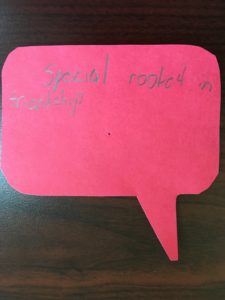
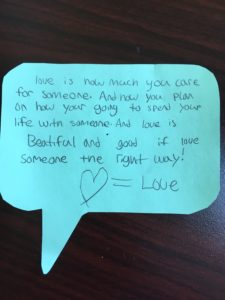
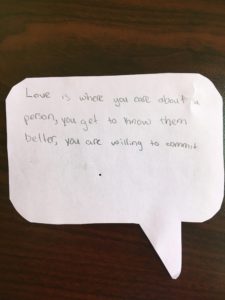

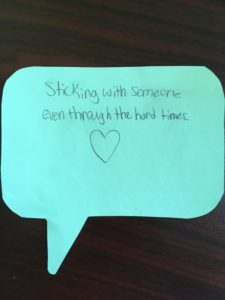

By Kath Crane

